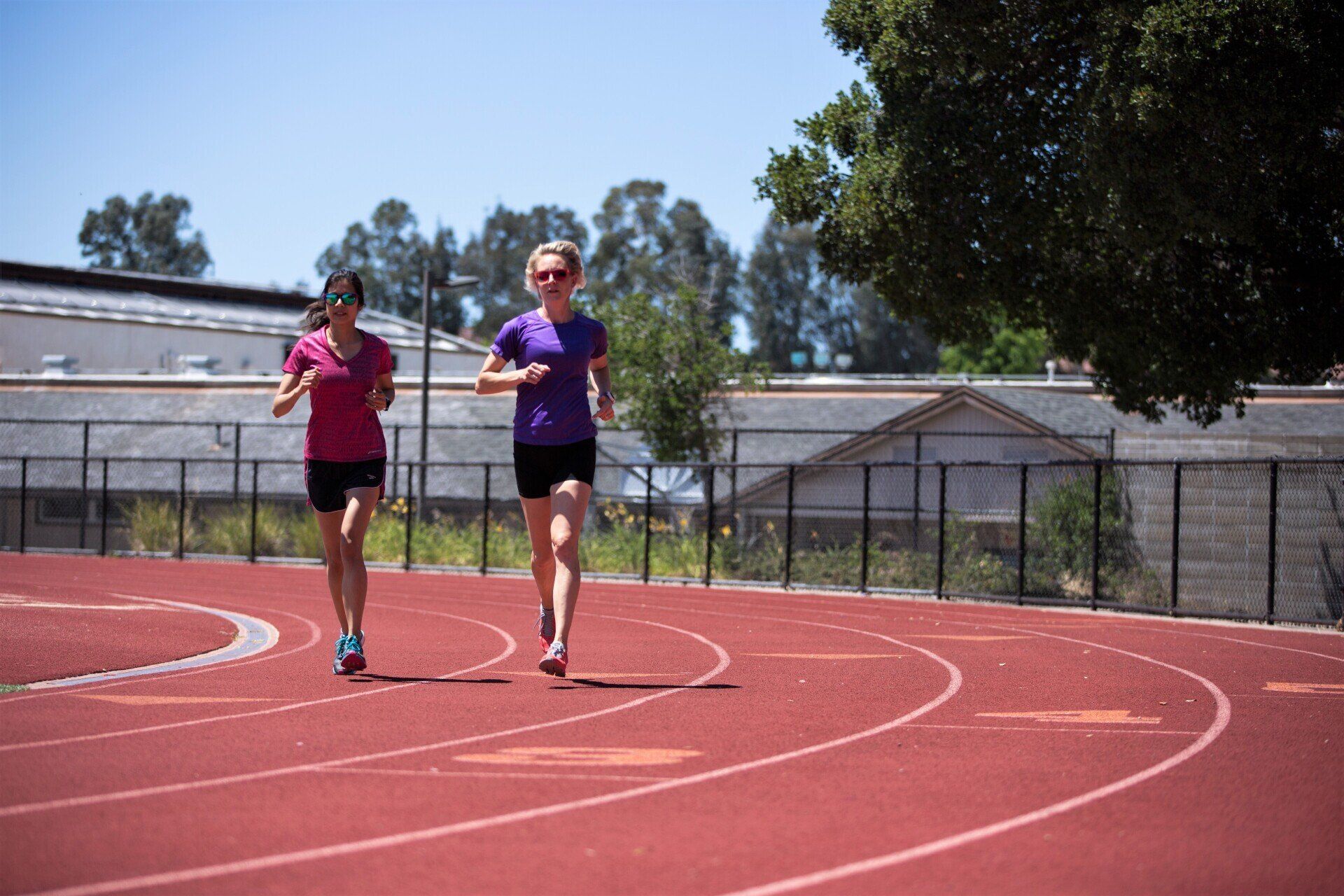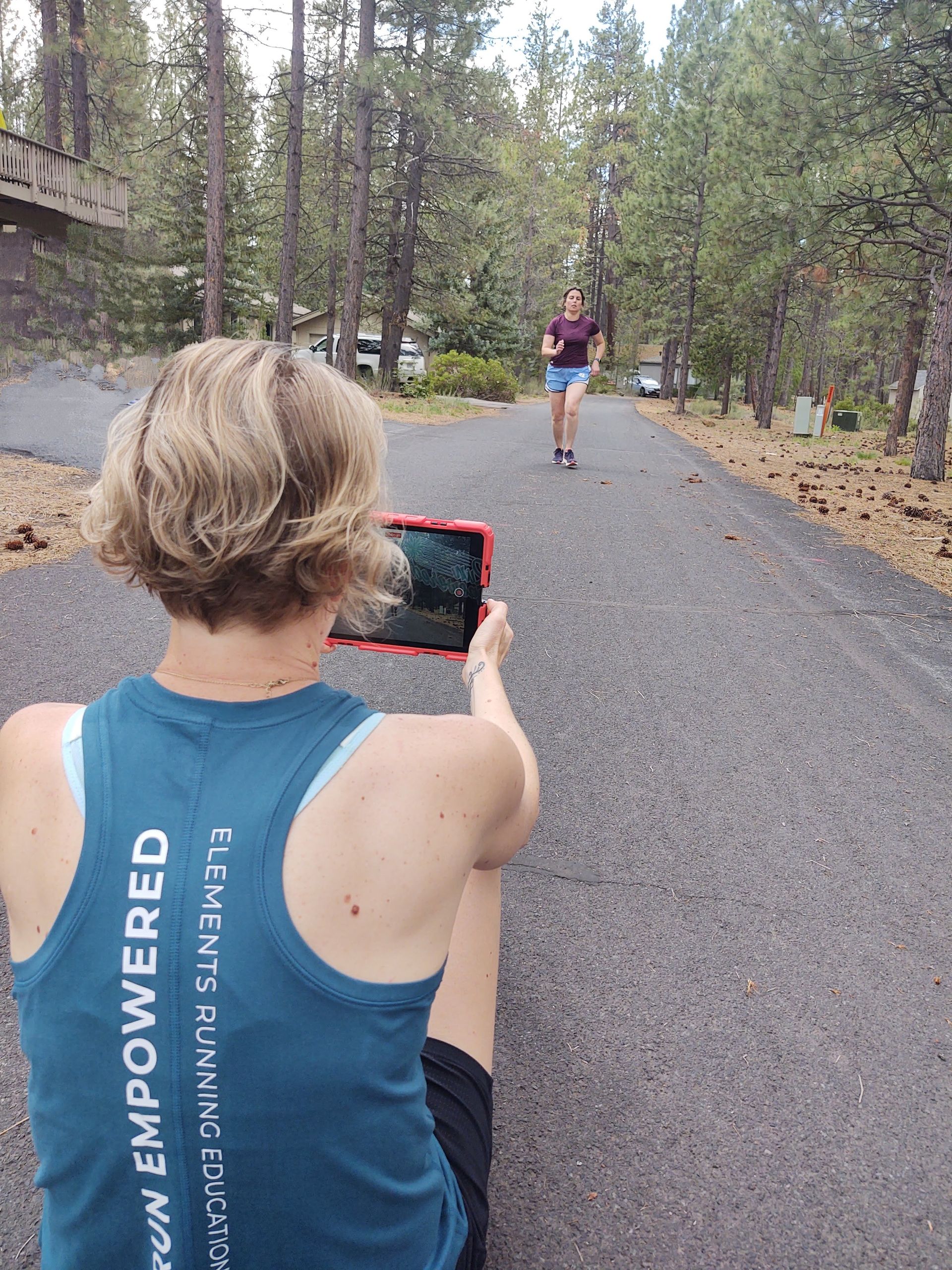Every Runner Wins with a Coach: From First Steps to Podium Finishes
Think running coaches are just for aspiring Olympians or seasoned marathoners? Think again! Whether you're getting started with running for the first time, returning from a hiatus, or chasing a personal best, a running coach can be your secret weapon to achieving your goals faster, training smarter, and staying healthier – and enjoying the journey even more.
Imagine this: a personalized training plan crafted specifically for your body, experience level, schedule and aspirations. A knowledgeable expert by your side, offering guidance, encouragement, and the latest research-backed insights. An accountability partner who knows how to motivate you and whether you need patience or a push.
Read on to discover the many ways a coach can support your running and fast-track your progress, no matter your current pace or previous experience. You’ll also get helpful tips on finding a running coach who aligns perfectly with your goals and personality.

What does a running coach actually do?
Design a training plan:
A running coach does a lot of the thinking for you when it comes to weaving workouts into your schedule. They will make sure your training plan makes sense both short- and long-term, according to your goals and abilities. A good coach will also help you understand the role of each run in your plan, and teach you how to adjust your training week.
Provide expertise and support:
When you have questions or face challenges, you can come to your coach. They will give you detailed guidance through each training month, help you pick the right goals, and offer encouragement and motivation when you need it.
Keep you accountable:
Outside accountability is key to making goals happen. Knowing your coach is witnessing your workout regimen and rooting for you along the way can be just the push you need to get out the door on low motivation days. But a coach’s job is not just to push you. Many times, they will hold you back to keep you from doing too much, which could lead to a higher injury risk.
Analyze your workouts:
A running coach will track trends, progress and plateaus related to your workouts to identify where you may be able to push yourself or need to pull back for your safety. With the data from your workouts along with the notes and feedback you share, your coach can build the next block of training accordingly.
Research and read:
New concepts in training and research are constantly in development, and staying on top of it all can be exhausting when you lead a busy life. A good running coach will stay informed and up-to-date on industry happenings and apply better methods to your plan.

Running coach for every runner
You don’t need to run a specific number of miles or hold a certain amount of medals before enlisting the help of a running coach. All it takes is a desire to run regularly and form healthy habits. Here are a few ways a running coach can help you, whichever level or stage of running you’re at.
If you are a total beginner or returning to running after a long break:
A running coach will help you get started safely with the proper progression and smart habits. Running can be exciting for beginners, which may result in doing too much, too soon and risking injury. In the initial journey, it’s easy to feel motivated some days and want to throw in the towel on others. A qualified coach will reassure you that this is normal and help you stay on track. After all, your coach was a beginner once, too!
In the early stages of running, you’ll benefit most from learning how to make running feel routine while staying healthy and enjoying lots of emotional support and encouragement along the way.
Once you complete a beginner’s training plan or your first short race:
You’ve reached the “in-between” part of your running journey. You may be only a few months into it and often don’t yet feel quite like a runner. You’re no longer a complete beginner, but you’re still inexperienced, and it can be tough to know how your training should look at this stage. A coach can help you figure out the next steps and a suitable goal to stay focused. They will also know the right time to introduce more distance or different workouts in your training plan.
This is a great time to work on confidence, self-belief and your identity as a runner, so you can stick to your routine and enjoy running for the long term.
For intermediate runners who want to run faster or longer:
Training gets more data-driven and strategic. An experienced coach has a deep understanding of different types of workouts and what type of training is needed to improve endurance, stamina or speed. They will help you with a training plan to support your strengths and improve on your weaknesses. This may be the first time you do more demanding run workouts, and a coach will provide the support you need to succeed in them while keeping an eye on the big picture and your long-term health. That can mean holding you back until your body is ready to do more.
This is a great time to work on running form drills, technique and on improving your efficiency.
If you are an experienced runner who is familiar with racing and training plans:
You already know a lot, but this is where working with a coach can have a huge impact on your continued running success and help you push deeper into your potential. Even coaches have coaches, because they will bring fresh ideas to your training and remove the burden of doing the thinking that goes into writing your own training plan. This frees up your time to do more of what you love: run.
If you have been working together for a while, your coach will often know what you’re capable of before you do. They will teach you how to train in cycles and with an arc of long-term development in mind, rather than training for one race at a time. They will also be able to look at your training objectively, put things in perspective and help you avoid comparisons while helping you stay focused and motivated.

Finding the right running coach for you
Coaches have different areas of expertise, types of clientele and communication styles. It’s worth spending a little bit of time figuring out what you’re looking for so you can find a running coach who is able to provide just what you need! Interview a few coaches to find someone who is a great fit.
Define your goals:
Are you aiming for a 5K, a marathon, or are your goals something other than races? Do you want to improve your speed or build endurance? Knowing your goals will help you find a coach with the right experience.
Understand your needs:
Are you looking for a coach you can meet with locally, or does remote coaching work better for you? How do you like to communicate? Do you need someone who can also build strength workouts or provide nutrition advice? Both of these require extra certifications – some running coaches are also personal trainers or dietitians, and many will have a network of other professionals to refer you to.
Research and ask around:
Look for coaches online, at local running stores, or through running clubs. Ask fellow runners for recommendations. Facebook groups can be a great source of information.
Consider qualifications:
Nationally recognized certifications like RRCA or UESCA can be a good indicator of a coach's knowledge and experience. It’s not an industry that’s closely regulated, so ask about their training and qualifications. Both organizations have a registry of qualified coaches on their website.
Schedule a consultation:
Many coaches offer free consultations to discuss your goals and see if you're a good fit. This is your chance to ask all your questions and get a feel for their coaching style.
Questions about coaching?
I offer free discovery calls to chat about your running goals and coaching needs. I specialize in working with busy, recreational runners – whether you have race goals from the 5K to the marathon or want to establish a healthy and balanced running routine that fits your schedule. You can work with me 1-on-1, through my seasonal small group programs, or start for free by joining our Run Empowered online community for women. Reach out and we’ll find time to chat!
About the author:
Heini Tallent is an RRCA Level 2 certified running coach and licensed sports massage therapist. She's the owner of Elements Running Education and helps recreational runners aged 40ish and up train with more confidence, higher motivation, and the knowledge needed to make running a healthy and enjoyable lifelong journey. Heini coaches her clients 1-on-1, through small group programs and the Run Empowered online community for women. She also works with everyday athletes and active people at her private massage practice near Portland, Oregon.
RRCA running coach in Oregon, USA
Online run club for women
Running programs for recreational runners
Running technique coaching




